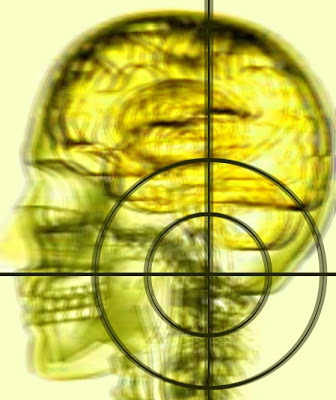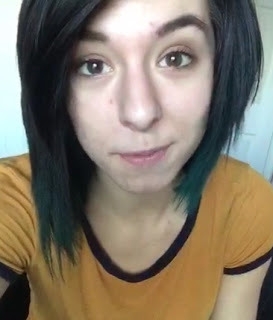John Janaro's Blog, page 181
June 22, 2018
Twenty Two Years on June 22nd!
Every year these "kids" look younger and younger...
Published on June 22, 2018 08:29
Twenty Two Years on June 22nd!
Every year these "kids" look younger and younger...
Published on June 22, 2018 08:29
Twenty Two Years on June 22nd!
Every year these "kids" look younger and younger...
Published on June 22, 2018 08:29
Twenty Two Years on June 22nd!
Every year these "kids" look younger and younger...
Published on June 22, 2018 08:29
Twenty Two Years on June 22nd!
Every year these "kids" look younger and younger...
Published on June 22, 2018 08:29
June 19, 2018
Mental Health and Technological Power
 Recently, two American celebrities died by suicide in the same week. I have written numerous articles that address directly the tragedy of suicide, the frequent underlying struggles with mental illness, and my own experience with Depression.
Recently, two American celebrities died by suicide in the same week. I have written numerous articles that address directly the tragedy of suicide, the frequent underlying struggles with mental illness, and my own experience with Depression.I am also among those who have lost loved ones. For me, this is an intensely personal topic.
At this time, I find it too difficult to address directly. But I have observed the wider conversation, and it has prompted me to put a few thoughts together on mental health within the context of the peculiar circumstances we live in today.
The news, the blogosphere, and the social media world have chewed over various aspects of these recent suicides and what might have led to them, as well as broader mental health issues.
People are beginning to become more aware of mental illness, at least in general terms. The extent of the problem, however, has also begun to generate reflection about what it means to live a happy life. What do we need to be happy? Why are so many people unhappy? Are we "doing it wrong," somehow?
The frequency of tragic deaths among those who are regarded by our society as competent and successful is one of the circumstances that has prompted people to raise these larger questions. Is the increase in suicide today a sign of a fundamental dissatisfaction with a life rich in material prosperity but poor in personal values, community, and ultimate meaning?
Here we identify an important problem. We need to recognize our distorted and dangerous ideal of human achievement, and revise our isolated, individualistic paradigm of a self-sufficient, autonomous human existence focused on self-generated success.
In fact, living isolated in this society and being measured by its standards breaks people in many ways, including the ravaging of their mental health.
No doubt this is part of the problem. But mental health, like all human health, is subtle and comprised of many facets. We cannot forget that there are also neurobiological propensities that have a hereditary element (among other elements) and that can develop into pathological conditions that need health treatment. It shouldn't surprise us that we see more of this in the ferociously stressful and disoriented society we live in.
I find the need to emphasize the reality of mental illness because too many people still don't see it as a factor at all. That can be a dangerous mistake.
Mental illness is real. Psychiatric care is health care. It might be necessary. It is nothing to be ashamed of. We can ask questions about our understanding of what makes for a happy life and what diminishes happiness and also address the nature of mental illness as a medical problem. These are not mutually exclusive (or even competing) conversations.
At the same time, the our problems in our society today require us to consider a new set of factors that we are also prone to overlook. We hardly notice that as humans today we live in conditions never known before in history, or we consider this fact to be an unqualified improvement of life. In truth, it is more complicated and ambivalent than we know, and we have hardly begun to grapple with it.
In the "developed world," our ordinary ("normal") lifestyle is vastly "extended" by the environment of dizzying possibilities opened up by technological power. We are not speaking about some occasional remarkable augmentation of human activity, but rather the immense apparatus that we employ in the basic gestures of engaging with reality in our daily life.
Even a little reflection makes this clear, starting with the light switch and the water faucet, going on to the whole complex technological infrastructure that shapes our homes and the way we live in them, and then cars and mass transportation that have changed human interaction as much as anything in history, and--yes--smartphones too, which in part represent the desperation of people trying to be connected while also being uprooted and constantly moving around.
We could go on and on, analyzing and unpacking the implications of technology in every facet of life to a point we might find shocking. Yet we easily integrate into our awareness and expectations these techniques that enormously extend our sensory capacities and our physical power.
We are scarcely conscious of our "tools." Yet they change us even as we use them. They have stretched the potential of human temporal life and vastly expanded the choices available to us. Yet we lack a sense of direction and find it more difficult than ever to focus our freedom. We may feel empowered, but we also feel bewildered. We are overwhelmed, overextended by what seems to be the excessive complexity of life, crushed by what we think is expected of us.
And what is the point of it all?
The multiplication of frustrations and the sheer stress engendered by this huge extension of the possibilities for involvement with the material world give a potentially monstrous scope to human life. This surely must be a factor in the rise of debilitating physical and mental illness in our time.
It can also deepen the lack of real relationships and community in people's lives. The illusion of human self-sufficiency is no longer a luxury of philosophical speculation or an opaque aspiration for people in general. Technology has democratized individualism, and taken it to a new level.
Today, the average ordinary individual has so much access to material power (utterly unprecedented, like nothing in human history) that people easily put into practice the ideology that they can create their own identity and define the meaning of their own humanity. Mass technology has given power the "feel" of being spontaneously available; it seems natural to use it for whatever it can do, and however we wish.
Indeed, the use of technology is "natural" (it is an application of human practical reason) but it has to be subordinate to the human person, and the human person has to live in real relationship to God and other persons.
"Is it possible to live this way?"
It must be possible. Without the foundational experience of belonging-to-something-else, to that Mystery that gives value to all of life including "myself," all this technological power just scatters our humanity and uproots us more and more.
But we don't even perceive that there's a problem, which points to the extent to which we have become alienated from ourselves. We are numb to our fundamental human needs because we have become drunk with power to manipulate the world and our own bodies.
I do not condemn technology, but I do want to emphasize the need for balance in the titanic new environment it generates, the need for a "technological ecology" not only for the planet in general, but for us as human persons.
Otherwise, our life in this world will increasingly become collectively sociopathic. This will wreak havoc on what's left of normal human efforts to live reasonable, generous lives. It will suffocate physical vitality and, obviously, be disastrous for mental health. People who have neuro-based sensitivities to mental disorders are going to have these propensities exacerbated (others will suffer repeated traumas, that build up like so many "psychological concussions" until they become serious conditions).
Therefore, the urgent problem of mental health requires us to consider not just "neurobiological illness," nor can it be reduced to just "social problems." It involves both these factors and a lot more.
With all the amazing power we possess, we need a corresponding deepening of our humanity, a deeper awareness of the human person, a deeper solidarity, and a deeper sense of responsibility and compassion.
Published on June 19, 2018 20:11
June 15, 2018
Long and Cool Evenings
Mid-June is one of the loveliest times of the year in Virginia. It's possible to take nice walks even after dinner (Janaro-style dinner being never before 7:00 PM).
The evenings are long and cool, there are lots of fireflies but not many mosquitoes (not yet!
The evenings are long and cool, there are lots of fireflies but not many mosquitoes (not yet!
Published on June 15, 2018 19:00
June 13, 2018
Survivor

SURVIVOR
I remember the days of running.
They were days upon days of slippery running on glassy ground
under an electric forest, with whispering wirey trees
tangled together into angry knots.
And the birds did not sing
or breathe,
but lay everywhere still,
like colored shadows in the long twilight.
Days upon days, every day the same.
Every day we were running, running away,
feeling forever in a winding tunnel of wind and echoes,
a path of perpetual survival.
"Run, scream,
scream to hear yourselves.
Run, scream,
feel the life inside you and hold hard on it.
Follow the little soft lights.
Stay in the shade,
or you will burn away
and become skulls with empty sockets,
and forever-frozen jaws."
I remember the days of running
with a huge roaring crowd,
all of us with electric shoes that jumped up and down,
each footfall shaking the floor, a great thumping sound,
flooding the room,
flooding our heads.
Sound upon sound, gigantic, total,
always the same, the unceasing clamor,
clatter, crashing rush
of running to save our lives.
"Run, scream, shout the song
with your synthetic throats.
Shout with the dance of the electric feet.
Shout and run and stay with this beat,
because music is dangerous; like fire
it will consume you utterly.
But we are running to survive, day upon endless day,
and we will never change."
One day
I remember running.
It was very early in the morning,
and the blue rain was falling all over my face,
splashing, stinging, vanishing into vapor,
into the florescent cyan mist that was light to my withered eyes.
One day among all the days upon days,
I was running
and I turned my head.
I did not intend to turn my head,
but I could not help it.
I thought I saw something.
My eyes were fixed against the edge of the sky.
"Run, run, and never stop
for in the stillness you will die.
That one over there has stopped and turned:
his face is white.
He says he saw something.
He says he is hearing something.
Now he vanishes and runs no more.
But we run into the day, and the days upon days to come.
We are running with those who survive."
A man was sitting in his lounge chair going through his Twitter feed and it was all the usual stuff, you know, nothing ever changes, but then he saw a tweet from @XX and he always paid attention to @XX's tweets, so he read it and it was just HORRIBLE NEWS! He thought, "Lives keep being snuffed out! What a brutal world we live in. But this is especially unbearable, to be so young with so much vitality and so many hopes and dreams, and to just get killed like that. Why did this happen, why, why?"... but then his lament was interrupted by an inner urging: 'Look look look!' What? 'Look look look! Look there! Look there!' "Wait," he thought, "There's something to see here, if I'm willing to look."I stopped running one day.
I looked.
There was a flash on the horizon,
not like the dawn that comes every day
mild and sweet and seldom noticed.
No, there was a flash
like the convergence of a thousand suns.
And even as I turned to look and listen
the sky spoke thunder
and white hot light swallowed the earth.
There was no time.
No time to dither or complain,
to flee or to be afraid.
There was no more running
and nothing was the same anymore.
Everything had changed.
Everything, and yet...
There is a strange space of passage, still,
inside this flashing moment.
For who calculates the division of this instant;
who can fathom the depth of its duration?
Who knows how to measure the distance
between the beginning of the end
and the end of the end?
What we know is that the moment has come,
the time is at hand.
I am still here today with my scars
and people call me a "survivor."
But in this gifted interval which I cannot hold,
I tremble and hope and speak of what I have seen and heard.
Published on June 13, 2018 20:57
June 11, 2018
Grimmie's Green Day
I designed this graphic for June 10, the second annual #GrimmieGreenDay in honor of the late Christina Grimmie. I am so grateful for the tremendous and enduring gift of this amazing young woman, her beautiful music, and her great heart.
Though she was taken from us too soon, her brief life of faith, self-giving, openness, and attention to human persons was an expression—to the very end—of that love which is our only hope against the violence of this world.
Though she was taken from us too soon, her brief life of faith, self-giving, openness, and attention to human persons was an expression—to the very end—of that love which is our only hope against the violence of this world.
Published on June 11, 2018 19:00
June 9, 2018
After Two Years, Christina Grimmie Means More Than Ever
 June 10 marks two years since the passing of Christina Grimmie. What can I say?
June 10 marks two years since the passing of Christina Grimmie. What can I say?I can't explain why this girl has had and continues to have such a powerful impact on my life. I can't explain it.
Okay, true: she was a great "female singer/songwriter/musician"—it's clear that in more popular forms of contemporary music I appreciate especially artists of this kind. She was a YouTuber. She was a Christian. She was a beautiful young person whose life ended tragically.
It's hardly surprising that I am very moved by her and continue to be interested in her legacy.
It doesn't explain why she has shaken my soul to its very core.
There is something mysterious about all of this: something that is greater than music, greater than audiovisual media, greater than my interests, greater than death...
Though I never met her while she was living in this world, Christina is my friend. Even though I am still shocked, saddened, appalled, and grieved by what happened to her, I cannot deny that she has become more and more of a great and powerful and deeply encouraging friend to me in the past two years.
How is this possible? What am I talking about?
It's true that there are still her videos (where she seems to make the screen disappear and really be-with-you and communicate with you person-to-person). There's all her stuff from Twitter and other social media. There is the new music that has been released (and of course the Christina Grimmie Foundation and the continued presence and generosity of her family).
I cannot look at all these things as just stuff she "left behind," as just stuff-from-the-past. And it's not enough to say that she "seems to be with us, still;" it's not enough to say that it's "as if" she is still "with us."
But I also cannot try to pretend she's "still here" in some fuzzy, mythological, spiritualistic kind of way. There is no "magic" that can be invoked. This can't be some kind of imaginative escape from reality, some "alternative universe" we can conjure up. She's not accessible in any physical way, and there is no denying that her life and activity in this world have come to an end.
 There is a "finality" about this fact that, as long as we live in this world, cannot be fully understood. It rightly evokes grief and sorrow that are profound but must not be overwhelming. Our human understanding does not "see," even though it probes and wonders and has obscure hints of things.
There is a "finality" about this fact that, as long as we live in this world, cannot be fully understood. It rightly evokes grief and sorrow that are profound but must not be overwhelming. Our human understanding does not "see," even though it probes and wonders and has obscure hints of things.I am a Christian, of course. I believe that Jesus is the resurrection and the life. I can say, "Christina is with Jesus." Indeed, my hope is that many who have gone before me are with Jesus.
But if Christina's life is over, how can she "become more of a friend" to me? Am I just learning from her example? That's part of it, but I'm not sure it explains everything.
Christina died on June 10, 2016. Her life in this world is finished. But what is life? When the life of a person is "finished," it is also completed. The person reaches their fullness; they become "who-they-are" in a complete and irrevocable way.
How could we be satisfied by saying that all the good and beautiful things a person did in this world "live on" but the real person who did these things has ceased to exist? That contradicts our entire sense of the value of being human, of loving, of making sacrifices.
I can't be satisfied with that, not just because I'm a Christian, but because I'm a human being. I myself am a human person. I am seeking the fullness of being a person. Every person is a mystery, living with a purpose, seeking a destiny which includes relationship with other persons. Just because I can't put all this under a microscope doesn't mean it's not real. Personhood is more real than any of the things we measure and dominate in this material world.
The person endures beyond death. But how? We seek understanding, even a little bit, a drop, a sign of some meaning we cannot yet fully grasp.
This is what I am "thinking" as a philosopher (if you will) and in any case as a human being (and I am hardly the only one who has thought about it this way): A person endures in the mystery of his or her real self, and in the relationships deepened, fostered, engendered, and nurtured by his or her actions. The person who says "I" endures. The person who says "I love you" endures in that love-for-you . And as the fruits of their actions unfold, the loving person's heart "opens up" to the awareness of people in the world and becomes more accessible.
The person endures (lives!) in completeness and as radically entrusted to the Mystery beyond death. The person also endures as "remaining-in-relationship" through the love by which they gave themselves to others (a gift now fulfilled and irrevocable). Within this interpersonal relationship, this communion of love, they nurture our hope as we continue the journey of this life.
 This is a real and powerful relationship.
This is a real and powerful relationship.And if a person gives his or her self unconditionally and concretely, embracing each other person with an openness to welcoming any person they encounter, and if they live and reach the fulfillment of their life in and through that unconditional love, it's not surprising that people continue to "meet" them and experience their love in a personal way even after their death.
They have become forever "persons-with-open-hearts" and there is room for everyone in the fruition of the love they have given, that continues to unfold in the present world.
I don't know if this makes sense to you all. Does it seem rather abstract when we look at the girl who once described her life as "food, music, and video games, all united and lifted up to Jesus"?
Yes, it does in a certain sense. Perhaps that shows how ironic and beautiful and odd and funny it is that we are friends.
[By the way, I think the descriptive imagery she used to talk about herself, her relationships, and God—in the reference I just noted and in other ways and other contexts—was profound, apt, down-to-earth, and humorous all at once.]
What I want to express above all on this June 10, 2018, two years later, is how incredibly grateful I am for Christina Grimmie, for her life, for her person, for the mysterious way that she is a friend to me and helps me, and for the love with which she gave her self—the love that continues to bear fruit.
Published on June 09, 2018 21:01



